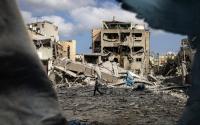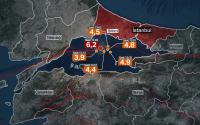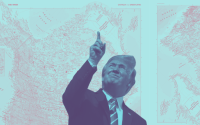James FallowsSeptember 24, 2002
Recently I interviewed several dozen authoritative people about what could be expected in Iraq after the US dislodged Saddam Hussein. The assumption behind the question was that sooner or later the US would go to war - and that even with limited allied support US forces would win. What then? The people I asked were spies, Arabists, oil company officials, soldiers and diplomats. Some supported a pre-emptive war against Iraq; more were opposed.
The clearest theme to emerge was that even if the war were quick, escape from the post-war obligations would be difficult and slow. Some members of the "war party" in the US now stress this as an advantage. In this view, a long-term American commitment to "remake" Iraq - as Japan and Germany were remade 50 years ago - is the first step to real democracy throughout the Arab world. The majority of soldiers, diplomats, and Arabists laugh aside that possibility and view long-term presence as an inevitability rather than an opportunity. So what are the biggest problems Iraq's opponents would face after victory?
The greatest concern on the first day of peace would arise from the last days of war. The particular fear is that on his way down, Saddam Hussein would use chemical weapons not only tactically, to slow attacking US soldiers, but also strategically, against Israel. "What's the worst nightmare at the start?" a retired American general who fought in the Gulf war asked me rhetorically. "Saddam Hussein hits Israel, and [Ariel] Sharon hits some Arab city, maybe in Saudi Arabia. Then you have the all-out religious war that the Islamic fundamentalists and maybe some Likudniks are itching for."
In the long term, Iraq's prospects would be brighter without Saddam. But in the short term many Iraqis would be dead, wounded, desperate. "You are going to start right out with a humanitarian crisis," says William Nash, a retired two-star general. He was in charge of post-combat relief operations in southern Iraq after the Gulf war. "In the drive to Baghdad, you are going to do a lot of damage. Either you will destroy a great deal of infrastructure by trying to isolate the battlefield or they will destroy it, trying to delay your advance. Right away you need food, water and shelter - these people have to survive. Because you started the war, you have accepted a moral responsibility for them."
From the US perspective, it wouldn't really matter whether the war left Saddam himself dead, captured or in exile. What would matter is that his whereabouts were known. "My nightmare scenario," Merrill McPeak, former US airforce chief of staff, told me, "is that we jump people in, seize the airport, bring in the 101st [Airborne Division] and we can't find Saddam Hussein. Then we've got Osama and Saddam out there, both of them achieving mythical heroic status in the Arab world just by surviving. It's not a trivial problem to actually grab the guy, and it ain't over until you've got him in handcuffs."
When the lid comes off after a long period of repression, people may be grateful and elated. But they may also be furious and vengeful. William Nash, who served in Kuwait, Bosnia and Kosovo, says: "The victim becomes the aggressor. You try to control it, but you'll just find the bodies in the morning." Occupation forces typically require one soldier or police officer for each 500 local people, plus one supervisor for each 10 policemen. For the 23 million Iraqis, that would mean a force of about 50,000. Providing enough occupiers on a sustained basis, without allies, would be surprisingly hard for America's all-volunteer military. The military's headcount has continually gone down, even as its level of foreign commitment has gone up.
Iraq has no obvious sources of new leadership. The main resistance to Saddam's regime comes from the Kurdish chieftains of the north. But their main impulse has been separatist: they seek autonomy from the government in Baghdad and feud with one another. The leading Iraqi exile group, the Iraqi National Congress, survives on money from the US government and lacks substantial support inside the country. "The opposition outside Iraq is almost as divided, weak and irrelevant as the White Russians in the 1920s," says Anthony Cordesman, of the Centre for Strategic and International Studies in Washington. "What you will need is a man with a black moustache," a retired British spy who once worked in the region told me.
Whoever is in charge in Baghdad will need to keep the Kurds of the north from rebelling, so that Turkey does not carry out its long-standing threat to invade and put down such a rebellion itself. Whoever is in charge will need to defend the long southern border with Iran, where half a million soldiers died during the 1980s. "As the occupying power, we will be responsible for the territorial integrity of the Iraqi state," says Charles William Maynes, of the Eurasia Foundation in Washington. "That means we will have to move our troops to the border with Iran. At that point Iran becomes our permanent enemy."
Iraq's occupiers would soon have to launch their version of "de-Nazification": identifying and punishing those who were personally responsible for the old regime's brutality, without a Khmer Rouge-style purge of everyone associated with the former government. The occupiers would also begin an Iraqi version of "loya-jirgasation" - that is, supporting a "grand council" or convention like the one at which the Afghans selected the leadership for their transitional government.
They would face a dilemma: either they could turn authority over to the new government whether or not it was ready, as is now happening in Afghanistan; or they could settle, like Douglas MacArthur in Japan, for a root-and-branch transformation of political culture, with nothing like the broad international support for such an effort that MacArthur enjoyed.
Iraq has tremendous oil reserves, which ultimately can finance its reconstruction and development. Occupiers would need to be aware of the threat of sabotage, especially in the Kurdish regions, where many wells are found. They would also need to help Iraq escape its tremendous burden of debt. Iraq was directed by the UN to pay reparations for the damage it inflicted on Kuwait during the Gulf war. Estimates of these obligations vary, but the very range - $200bn to $400bn - illustrates the problem. As part of regime change, the US would have to help solve this problem. Otherwise, "liberated" Iraq would be left like Weimar Germany after the treaty of Versailles, crushed by unpayable reparations.
· James Fallows writes for the Atlantic Monthly. A longer version of this article appears in the November issue, available online at www.theatlantic.com






